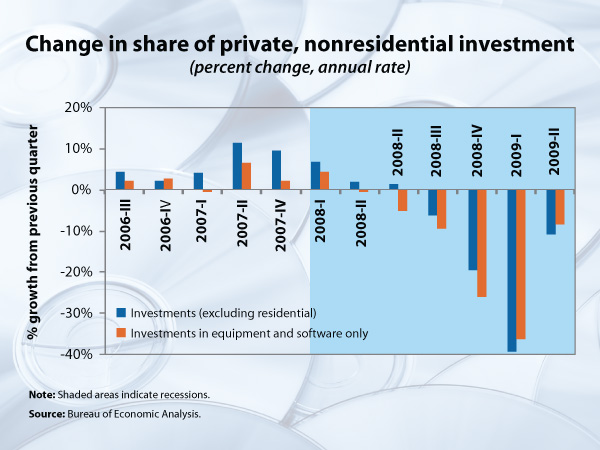By John Irons and Ethan Pollack
An important point often lost in the debate over economic recovery is that the pain created by a recession can last years after the recession is officially over. Business investments and R&D in a healthy economy play a central role in boosting future economic growth, but recessions typically result in lower investment spending and slower adoption of new technologies. This leads to slower economic growth long after a recession is over.

There are multiple reasons for this slowdown in investment. An economic downturn will lead to a drop in demand for companies’ products as incomes decline, lowering the returns on investment. Tightened access to credit in a downturn limits a business’s ability to invest. The increased uncertainty brought on by recessions may lead firms to retrench toward “core” products and production techniques, and make them less willing or able to experiment with new products and techniques. Finally, technology is often embedded in new physical equipment: As production and employment is reduced, there is less purchasing of newer equipment. As a result, workers are less able to utilize their skills, and there is less need to “up-skill” current employees or hire additional employees with new skills.
The figure shows the changes in non-residential investment over the last three years, as well as a narrower category of equipment and software (thus excluding structures). Over the 1947-2009 period, annualized quarterly non-residential investment has averaged 4.7%, while investment in equipment and software has averaged 5.9%. The figure captures the severity of the current downturn, with total non-residential investment down by 20% from peak levels through the second quarter of 2009.
Opponents of the economic recovery package often argue that deficit spending intended to boost the economy unfairly shifts resources from future generations. But without federal spending the recession would be more severe, and future generations would be subjected to lower productivity, slower growth, and less wealth.
